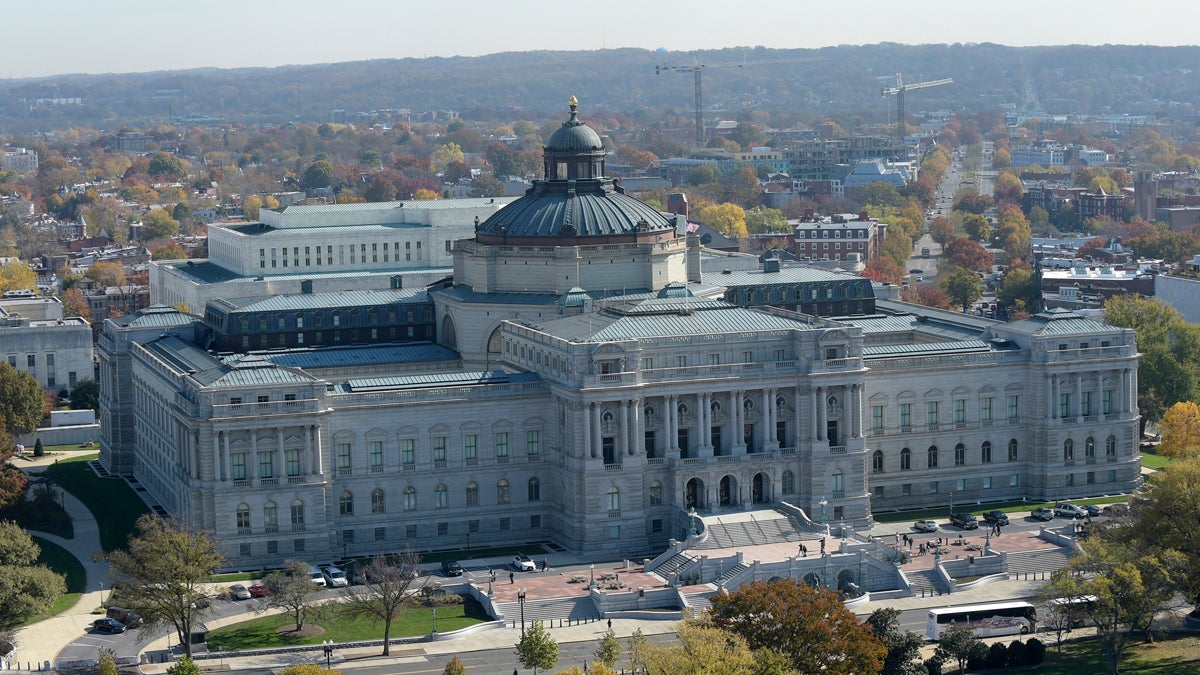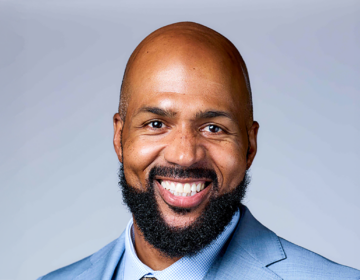Leaders of black colleges set to meet with GOP lawmakers, White House officials

A view of the Library of Congress from the top of the Capitol in Washington, Tuesday, Nov. 15, 2016. (Susan Walsh/AP Photo)
During his campaign, President Trump frequently asked the African-American community, “What do you have to lose by trying something new?”
Now, leaders of the nation’s historically black colleges and universities will meet Tuesday with White House representatives and congressional Republicans Tuesday to discuss how the Trump administration may be able to help them.
Congressional Republicans are hosting many leaders of the 100 public and private black colleges — known as HBCUs — in the Library of Congress.
Presidents of Cheyney, Lincoln, and Delaware State universities will be among the delegation.
Delaware State President Harry L. Williams said he hopes to make sure GOP leaders understand that a large percentage of HBCU students are the first generation to attend college and many are from low-income families.
“We also want to make sure that they have a clear understanding that some of the financial challenges associated with these students going to college,” he said. “We want to emphasize the importance of the federal support that we have received, and more specifically the Pell Grant … the importance of maintaining that grant and if possible add additional resources to that grant.”
Provided by the government to students in need, Pell Grants do not have to be repaid
Williams would also like to bring attention to recent changes to the federal Parent PLUS loans that have disproportionately affected the historically black colleges and universities.
“Because of some of the rules that changed in the Department of Education, it impacted a lot and a large percentage of our students [at many HBCUs], and some of those students are not back in school,” he said. “We want to emphasize the impact of that and, if possible, have someone to really look at that process and the policy.”
The meeting was organized by the Thurgood Marshall College Fund.
“From our standpoint, we’re in this together and higher education is nonpartisan,” Williams said. “So by having the leadership say that, ‘We want to talk to you, want to learn more about you,’ I look at that as a positive opportunity for our schools.”
He says nearly 90 presidents of the country’s 105 historically black colleges and universities will attend.
“I hope this event will be the first of many opportunities for Lincoln University to let the new administration and Congress know more about the significance of our great institution and its outstanding graduates,” stated Richard Green, Lincoln’s interim president.
Williams said he looks forward to talking with leaders currently in charge, including House Education and Workforce Committee Chairwoman Virginia Foxx, R-N.C.
“I think having her there will provide another opportunity for us to be able to put some of our challenges right on the table with the people who are going to be dealing with it,” Williams said. “So that’s something that is really positive.”
Green said he hopes to cover topics that will allow HBCUs to continue to make a meaningful impact.
“I will be especially interested in discussing strategic issues and initiatives that may impact the ability of Lincoln University, and all HBCUs, to continue to carry out our educational mission,” he said.
And Williams said he wants to highlight the contributions the colleges have made to the U.S. and internationally.
“We want to showcase some of our positive successes in terms of how we’ve been able to increase the number of students going into the STEM disciplines, underrepresented students going into the STEM disciplines,” he said. “We also want to talk about some of our positive research activities that some of our campuses have that they may not be aware of.”
One other item on Williams’ agenda is to make the case for emphasizing the importance of the HBCU White House Initiative by reassigning its director who now reports to the Department of Education.
“We feel strongly that that person should have a higher role, and we would like to see that person actually [report directly to] the White House,” he said, giving the director a higher level of visibility,” he said.
Williams said he hopes topics discussed by the college leaders will be reflected in President Trump’s budget plan, to be introduced in March.
“That would send a positive message to the HBCU community that we’ve been heard, and we are being listened to in a positive way and resources are going to come to our campuses,” he said.
WHYY is your source for fact-based, in-depth journalism and information. As a nonprofit organization, we rely on financial support from readers like you. Please give today.




